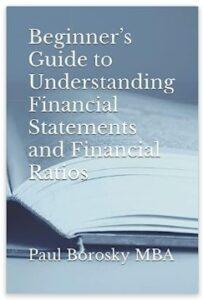How to Write a Real Estate Business Plan
Quality Business Plan's real estate business plan writer has found that the real estate industry has been growing at an above-average pace lately, which has driven demand for real estate business plans, real estate business plan templates, and real estate pro forma financial projections.
There are several factors contributing to this expansion. Firstly, housing availability in numerous regions throughout the nation has progressively dwindled. This predicament has led to a continuous ascent in real estate prices over the past few years. As real estate value continues to climb, so do the associated real estate commissions. The greater the potential for profit in the real estate sector, the more realtors are inclined to venture into the market. This constitutes just one of several rationales underlying industry experts' expectations of consistent growth in establishing new real estate companies. Consequently, as more realtors, specifically real estate brokers, initiate new enterprises, a corresponding demand arises for a well-structured business plan. From this perspective, our business plan writer has formulated a set of tips and strategies to aid real estate brokers in crafting a comprehensive and robust real estate business plan or business plan template (10/23).
CHECK OUT OUR HOUSE-FLIPPING BUSINESS PLAN TEMPLATE!!!
Executive Summary for a Real Estate Business Plan.
The executive summary section of a real estate business plan should furnish precise details concerning every facet of the organization. However, it is advisable to avoid an excessive amount of detail. For instance, our business plan specialist has determined that an executive summary for a real estate business plan should encompass a concise depiction of the internal operations of the business, one or two distinctive factors that differentiate the company from other real estate brokers, and a brief overview of the projected financial outcomes based on the number of realtors affiliated with the firm.
Additionally, within the executive summary section, it is essential to delineate the specialization or specialization of your company. For example, some real estate firms specialize in residential home listings and sales. In such cases, it is imperative to delineate the specific services your real estate company offers. Furthermore, emphasize the differentiating factors that set your niche services apart from the competition in the real estate domain. Standard niche services in real estate may encompass exclusive listing agreements, specialization as a buyer broker, or carving out niches as commercial leasing experts. By spotlighting your niche services within the executive summary of the real estate business plan or business plan template, business owners can promptly convey their niche services and their strategies for differentiation.
Company Information and Location for a Real Estate Business Plan.
The section containing company information, specifically the location segment of a real estate business plan, should expound upon the advantages of the company's office location. For instance, some real estate brokers opt for offices on high-traffic roads, capitalizing on external sign visibility for advertising purposes. Others may choose office locations near popular subdivisions, positioning the real estate company as an authority in a specific subdivision or niche market. Irrespective of the rationale behind the office location, it is essential to discuss it and underscore its benefits.
Regarding the company information section, real estate business plans should encompass fundamental details about the company, including the company name, address, and the range of real estate services provided. Additionally, our real estate business plan expert strongly recommends that business owners elaborate on the core competencies distinguishing their organization from other real estate companies. For instance, some real estate firms specialize in commercial real estate, while others focus on selling undeveloped land. Regardless of your specialization, the company information section is an excellent platform to introduce the topic.
Need Help Writing a Real Estate Flipping Business Plan?
Call or Text Paul, Doctoral Candidate, MBA.
321-948-9588
Email: Paulb@QualityBusinessPlan.com
Hours of Operation: Monday through Friday, 8 am to 9 pm EST.
Our business plan writer is located in Orlando, FL.
CLICK HERE TO CONTACT US TODAY!!!
Product Description and Competitive Advantages
In the real estate industry, professional services generally tend to be quite similar. These services encompass property listings, both residential and commercial, property sales, and, in some cases, providing estimated values for properties to be sold by owners. Irrespective of the services offered, it is crucial to pinpoint potential distinguishing factors that can bestow a competitive edge on your business. For instance, consider using networking as a strategy when selling properties. Networking among real estate agents generates word-of-mouth buzz for property and yields referrals. Once a networking strategy is selected, it should be documented within your real estate business plan or template.
Target Market for a Real Estate Business.

The choice of a target market for a real estate business largely hinges on the opportunities available within the market. Some real estate professionals may focus on specific subdivisions, employing door-to-door solicitation to secure listings. Others may specialize in commercial office listings and sales, requiring a robust network of referral sources. Regardless of your chosen target market, it is vital to elucidate its advantages, how your specific skill set aligns with this target market, and why this target was selected over other potential opportunities.
Industry research for a Real Estate Business Plan or Template
When conducting industry research, some real estate agents immediately delve into the specifics of their local area and the competition within that geographic location. However, our business plan expert suggests commencing the research by assessing the national real estate industry landscape. This approach helps real estate professionals establish themselves as industry experts. From this vantage point, they can subsequently analyze various real estate offices, emphasizing their strengths and weaknesses compared to the national and local market dynamics. By employing this framework, real estate professionals can evaluate competitors using a strategy that focuses on the strengths and weaknesses of specific rivals.
Owner and Management Section
The owner and management section of a real estate business plan should commence by highlighting the educational background of the real estate broker. Subsequently, the section should introduce work experiences related to real estate. When introducing this segment, endeavor to draw connections between your educational background and the achievements in your work-related experiences. This interwoven introduction can pave the way for discussions on plans and aspirations for the new real estate office and its potential for growth and success. Lastly, outline the number of employees expected to work for the organization and briefly describe their respective roles.
Funding Request for a Real Estate Business Plan or Template.

The funding request section for a real estate business plan should begin by specifying the capital required to initiate the real estate company. Subsequently, the real estate broker should identify key expenditure categories for the startup process. These categories may encompass expenses related to the new office location setup, working capital, advertising for the new real estate company, training costs, and office supplies. Once each category has an associated dollar amount, compute the total at the bottom. Ensure the total aligns with the top-line dollar amount requested in the funding request document.
Financials and Pro Forma Financial Projections for a Real Estate Company.
When preparing financial projections for your real estate company, initiate the process by determining the number of real estate agents expected to join your office at its opening. Next, project the average sales each agent will likely achieve. After calculating your monthly sales, estimate the average commission per sale and multiply it by the anticipated number of sales. This will yield an initial revenue projection for the first month. Subsequently, deduct real estate commissions paid to employees, fixed office expenses, and taxes. The remaining amount represents the net profits for the first month. Finally, utilize growth estimates to compile a 12-month profit and loss statement.
Hopefully, these insightful tips and tricks for writing a business plan were helpful. Email or call us if you need help with a business plan or financial projections.
Author: Paul Borosky, Doctoral Candidate, MBA., Author
Owner of: Quality Business Plan and Quality Business Consultant.
Date: 10/12/2023